
Kentucky was a southern border state of key importance in the American Civil War. It officially declared its neutrality at the beginning of the war, but after a failed attempt by Confederate General Leonidas Polk to take the state of Kentucky for the Confederacy, the legislature petitioned the Union Army for assistance. Though the Confederacy controlled more than half of Kentucky early in the war, after early 1862 Kentucky came largely under Union control. In the historiography of the Civil War, Kentucky is treated primarily as a southern border state, with special attention to the social divisions during the secession crisis, invasions and raids, internal violence, sporadic guerrilla warfare, federal-state relations, the ending of slavery, and the return of Confederate veterans.

Louisville in the American Civil War was a major stronghold of Union forces, which kept Kentucky firmly in the Union. It was the center of planning, supplies, recruiting and transportation for numerous campaigns, especially in the Western Theater. By the end of the war, Louisville had not been attacked once, although skirmishes and battles, including the battles of Perryville and Corydon, Indiana, took place nearby.

William Jackson Worthington served in the Union Army during the American Civil War, was a state senator, and served as the 26th Lieutenant Governor of Kentucky under Governor William O. Bradley from 1895 to 1899. He was born in Pennsylvania and died in Boyd County, Kentucky.
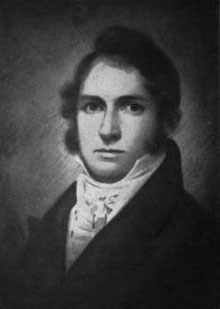
Alney McLean was a United States representative from Kentucky. McLean County, Kentucky, is named in his honor.

The Confederate Heartland Offensive, also known as the Kentucky Campaign, was an American Civil War campaign conducted by the Confederate States Army in Tennessee and Kentucky where Generals Braxton Bragg and Edmund Kirby Smith tried to draw neutral Kentucky into the Confederacy by outflanking Union troops under Major General Don Carlos Buell. Though they scored some successes, notably a tactical win at Perryville, they soon retreated, leaving Kentucky primarily under Union control for the rest of the war.
Huston Quin was mayor of Louisville, Kentucky from 1921 to 1925.

George Davidson Todd was Mayor of Louisville, Kentucky from 1896 to 1897.
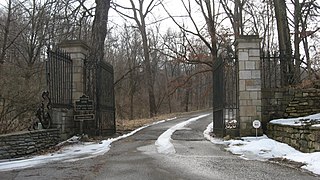
Lincliff is a Georgian Revival house in Glenview near Louisville, Kentucky, United States, built in the early 1910s by William Richardson Belknap.
The 28th Kentucky Infantry Regiment was an infantry regiment that served in the Union Army during the American Civil War.
Alexander Alan Arthur was a Scottish-born engineer and entrepreneur active primarily in the southeastern United States in the latter half of the 19th century. Flamboyant, charismatic, and energetic, Arthur used his prominent American and European financial connections to fund numerous business ventures, most of which were overly ambitious and ultimately failed. A proponent of economic advancement in what became known as the New South, Arthur played a primary role in the development of the Cumberland Gap area, and in the course of his endeavors established the cities of Middlesboro, Kentucky and Harrogate, Tennessee. The community of Arthur, Tennessee, is named for him.

Camp Boone, Tennessee was located on Guthrie Road/ U.S. Route 79 near the Kentucky - Tennessee border at Clarksville, Montgomery County, Tennessee. Kentucky had declared itself neutral in the war, and the site just inside Tennessee provided a place for pro-Confederate Kentuckians to organize their regiments without violating their state's neutrality.
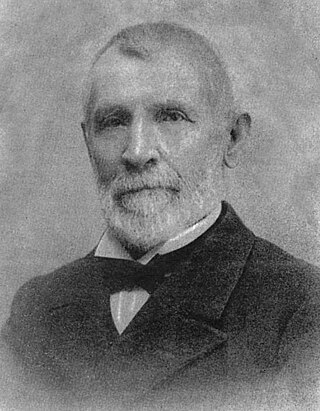
John Means was a mayor of Ashland, Kentucky and a leader in the banking and iron industries. He helped organize the Cincinnati and Big Sandy Packet Company, laid out Ashland Cemetery, built furnaces, served as vice-president of the Ashland National Bank, and served then led the growing iron business of the Means family. The Kentucky Encyclopedia of 2015 described the Means-owned iron empire as having "created massive enterprises out of the disorganized and weakened industry that emerged from the Civil War."
The 71st Ohio Infantry Regiment, sometimes 71st Ohio Volunteer Infantry was an infantry regiment in the Union Army during the American Civil War.
McDonald Brothers founded in 1878 was a Louisville-based firm of architects of courthouses and other public buildings. It was a partnership of brothers Kenneth McDonald, Harry McDonald, and Donald McDonald.
William Burke Belknap the younger (1885–1965) was the son of William Richardson Belknap and Alice Trumbull Silliman. He was an entrepreneur in the family of William Burke Belknap, the elder (1811–1884), son of Morris Burke Belknap of Brimfield, Massachusetts, who was engaged in the iron furnace industry and died in 1873. The Belknaps were founders, inventors of patented merchandise, and owners of the Belknap Hardware and Manufacturing Company in Louisville, Kentucky. William Burke Belknap was an economist and a professor of economics at the University of Louisville. Leading up to and during World War II, he volunteered for service with the Red Cross in Ramsay and Plymouth, England. He was a trustee of Berea College and a graduate of Yale and Harvard. As a Kentucky legislator, he served two terms as a representative in the Kentucky General Assembly. He was the owner of Land O'Goshen Farms, where he bred and raised sheep and American saddlebred horses, and he was the president of F.C. Co-operative Milk Producers Association.
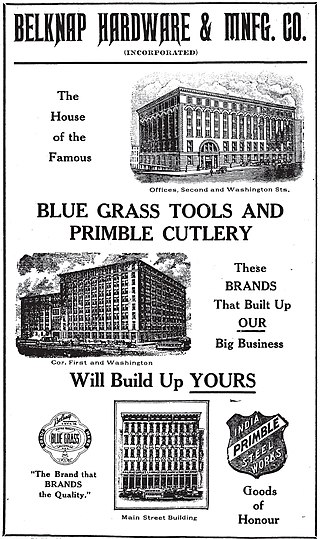
Belknap Hardware and Manufacturing Company, also known as Belknap Hardware Company or simply Belknap Hardware, located in Louisville, Kentucky, was at one time a leading American manufacturer of hardware goods and a major wholesale competitor of retail sales companies Sears, Roebuck, and Company and Montgomery Ward. Belknap excelled both in catalog sales and widespread distribution of its own name-brand manufactured products.
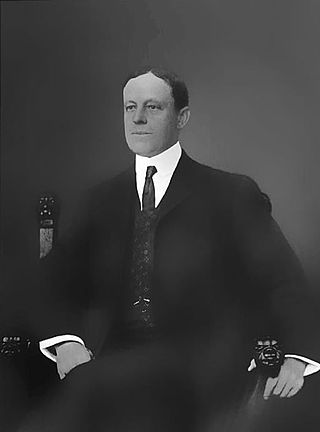
Morris Burke Belknap, also known as Colonel Morris Burke Belknap, was an American businessman from Louisville, Kentucky, and the Republican nominee for Governor of Kentucky in 1903. After earning a degree from the Sheffield Scientific School of Yale University, he worked at his father's hardware company. Later, he co-founded an agricultural implement company. In 1883, he married Lily Buckner, with whom he fathered four children. Following the death of his father, Belknap became vice-president of his hardware company, a position which he held for the rest of his life. Lily Buckner Belknap died in 1893, and he married Marion S. Dumont in 1900.
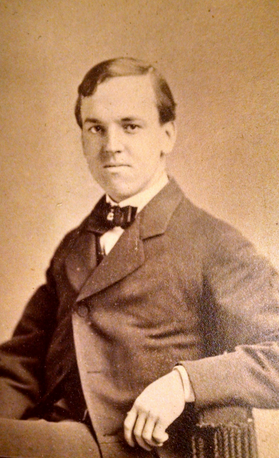
William Richardson Belknap, for 28 years was president of the Belknap Hardware and Manufacturing Company based in Louisville, Kentucky, one of the largest hardware American manufacturing companies and wholesale hardware companies of its time.

W. B. Belknap, also known as William Burke Belknap (the elder) (1811–1889), not to be confused with his grandson William Burke Belknap (the younger) (1885–1965) or great-grandson William Burke Belknap Jr. (1893–1952), was the founder of W .B. Belknap and Company, an early iron and nail business at Third and Main Street in downtown Louisville, Kentucky, which evolved by 1840 into the mammoth Belknap Hardware and Manufacturing Company. He was born in Brimfield, Massachusetts, where he spent his early years helping his father Morris Burke Belknap (the elder) (1780–1877) in an iron furnace foundry business.
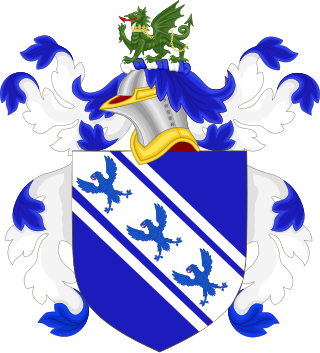
Abraham Belknap (1589/90-1643), of Salem, Massachusetts, not to be confused with his grandson also named Abraham, was born in England. He was one of the first settlers of New England, and all living people with the surname Belknap, Belnap, or Beltoft, are thought to be descendants of him and his wife Mary Stallion.














